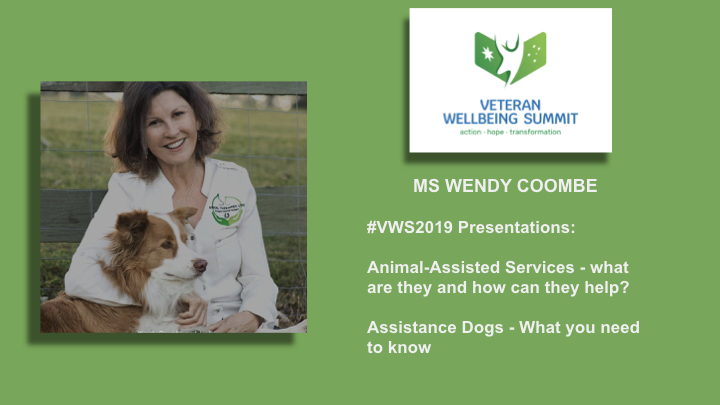Assistance Animals are trained to help their handler better access public life and manage their condition such as physical impairment, post-traumatic stress, depression and anxiety, diabetes, eye disease, hearing and vision impairment, seizures, asthma, life threatening allergies and episodic and serious medical crises (e.g. epilepsy, changes in blood pressure or blood sugar). This webinar will explain the legal definition of assistance animals and will also provide some practical guidance for those who think they may benefit from having an assistance dog.
This webinar took place 7 PM, Tuesday 10 September 2019
More about Wendy Coombe
Wendy Coombe is the member of a veteran family that spans across four generations. Her father went to Vietnam and both sons enlisted in the army with one son still serving following three deployments. On 20 November 2014, Wendy went to work like any other day as a senior manager for a large ASX- listed corporation. However, that afternoon – with no memory of how she got home – her life took a dramatic turn. A critical path for Wendy’s recovery came in the form of an Assistance Dog called Jack and equine-assisted therapy.
“One of the hardest things for me was telling my sons of my breakdown. I felt weak as though I shouldn’t have let a job break me but was reassured that I should never feel ashamed. I had lost the sense of who I was after dedicating 30 years to my career. I lost trust in humans but through animal-assisted services I learned new meaning and met networks of people who through their own journeys have added colour back into my life.”
As a result of Wendy’s experiences, she established Animal Therapies Ltd (ATL), a registered Health Promotion Charity, established on 21 February 2018. ATL aims to advance the understanding, acceptance and accessibility of animal-assisted services for those in need.

